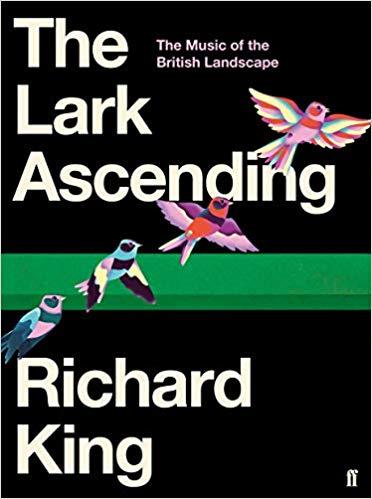The Lark Ascending – a review

This recently published celebration of ‘music of the British landscape’ is a perfect companion for perambulations in the countryside, as I found, taking it with me (in e-book format) on a long-distance hike recently in the north of Britain. Ostensibly inspired by King’s penchant for going for a rural stroll with an evocative personal soundtrack piped to his ear-pods, this jackdaw’s nest of a book does read at times like someone’s music collection on shuffle, flipping from Vaughan Williams to the Aphex Twins. It does offer a broad and effective introduction to the subject, discussing diverse iterations of the nation’s musical landscape – from the canonical to the counter cultural. Not surprisingly, it discusses Vaughan William’s perennial classic in some depth, but provides a wider context – both of the musical traditions that informed it, and the socio-historical context. It does not shirk away from the disturbing nationalist strain in the direction such evocations of place and paeans of ‘national character’ took in the Twentieth Century, and the chapters on Britain’s own Fascist movements (‘Sun Awareness’; ‘The Wide World’s Drift’), such as the Kindred of the Kibbo Kift with its (un)healthy obsession on youth, vigorous physical exercise, discipline, and dodgy dogma is particularly resonant in the light of the current resurgence of such loathsome ideology. However it strikes a bum note in equating the crypto-Fascist campfire songs with the sentiment of 60s and 70s English folk – to mention Fairport Convention or Nick Drake in the same paragraph as these English Wandervogel is creating a laboured moral equivalence. Another weakness of the text is in the actual quality of the prose, which is sometimes plodding. Considering the main subject of the book it feels surprisingly cloth-eared in its use of language, not that one expects a non-fiction book to be overtly lyrical, but when the material is predominantly about the affect of music in the landscape, a more euphonic register would at times not have gone amiss. At worst, this results in tedious sections about the Common Agricultural Policy and the like, which King insists on going into in great detail; at best, this reportage style results in some powerfully restrained and lucid accounts of the crushing of the ‘Peace Convoy’ in the mid-80s and the rise of the Rave scene, culminating in Castlemorton in the early 90s. The chapter on the Greenham Common Peace Camp stands out as an exceptional piece of writing, charting an important piece of social history in a sensitive way. The book is undoubtedly a very subjective representation of the ‘music of the British landscape’, but none the worse for that. King is making no claims here about being authoritative or comprehensive in his survey – it is a cross-section of his personal tastes and interests. In as much as it may lack the scope or prose of analogous works like The Ballad of Britain by Will Hodgkinson, or Electric Eden by Rob Young, The Lark Ascending is an affectionate and singular addition to this subgenre of musical genius loci. Well worth a stroll with, and it will certainly attune you to the musical dimensions of the landscape, and the landscapes of music.
The Lark Ascending: the music of the British landscape is published by Faber and Faber.
Kevan Manwaring © 2019



